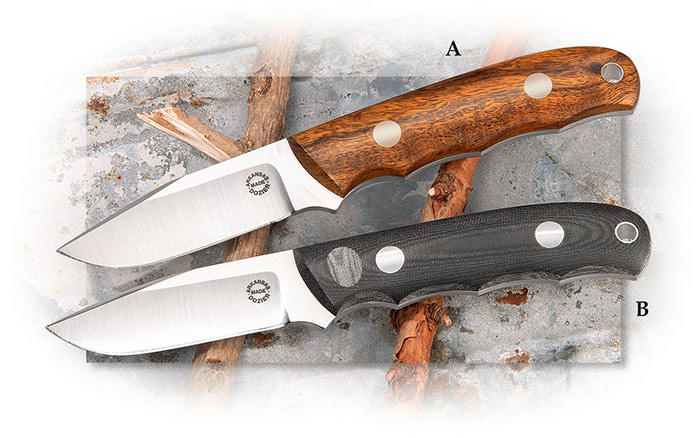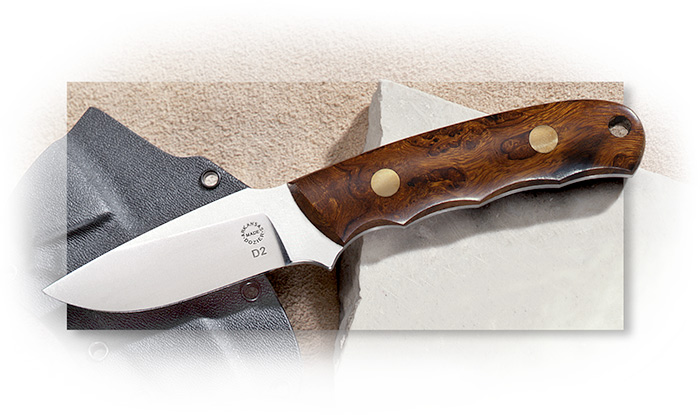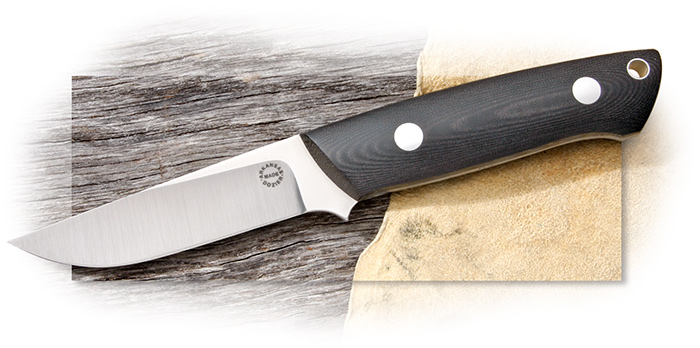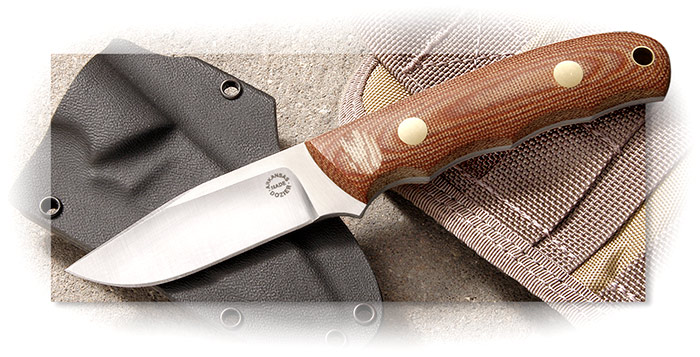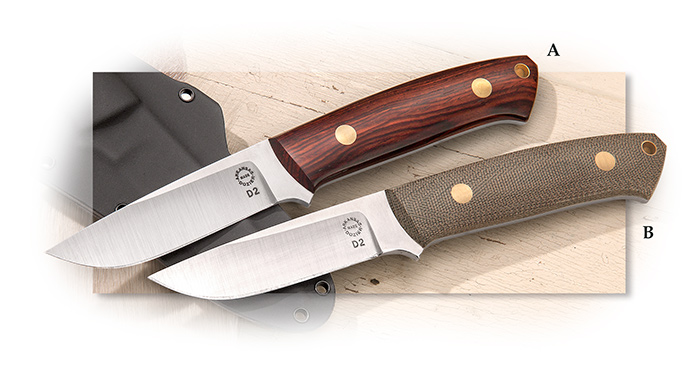Arkansas Made Dozier Personal Utility Desert Ironwood or Black Micarta
Item #: DK-PU3DI
$285.00
Over the years Bob Dozier has designed, and made, serveral small knives that he calls personal knives. Those include the Dozier Personal, Straight Personal and Personal Utility. The Personal Utility is what I see him have on his belt for everyday use. We have continued to offer all three of these knives on our website since we introduced the Dozier Personal in our Spring 1994 Catalog. The Personal Utility has been offered with black or brown Micarta®, and ocassionally with other handle materials for special orders. We have just had a delivery from Daniel Crotts who manages the Dozier Arkansas Made shop, that includes knives with Desert Ironwood handles. This is the first time we have had this knife with this handle material.
You will find that this is a knife which will be in constant use even if a larger knife is also being carried. The 3-1⁄4" clip point blade is D2 at 60-61 Rc., the blade steel and heat-treat that the Dozier Arkansas Made knives are so well known for. Measures 6-7⁄8" overall. Weighs about 3.4 oz. depending on the handle material. A horizontal Kydex® belt sheath is molded to each individual knife. The knife and the sheath are handmade in the Dozier shop in Springdale, Arkansas.
If a DozierArkansas Made knife is not in stock when you order, delivery typically takes 3 to 4 months.
Option A
Dozier Personal Utility Desert Ironwood
ALLOW 3 TO 5 MONTHS FOR DELIVERY
Option B
Dozier Personal Utility Black Micarta
ALLOW 3 TO 5 MONTHS FOR DELIVERY
Option
Dozier Personal Utility Black Micarta Left Hand Sheath
ALLOW 3 TO 5 MONTHS FOR DELIVERY
Option A
Dozier Personal Utility Desert Ironwood
-
HandleDesert Ironwood
-
Weight3.4 oz.
Option B
Dozier Personal Utility Black Micarta
-
TypeFixed
-
BladeUtility
-
Blade Length3-1/4″
-
Blade SteelD2
-
Rockwell60-61
-
HandleBlack Micarta®
-
Overall Length6-7/8″
-
Weight3.4 oz
-
SheathHorizontal Kydex
-
OriginUSA
Arkansas Made Dozier
Bob Dozier made his first knives when he was only twelve or thirteen years old. He told me the other day that after those few knives, he did not make another until he was about twenty-three and working as a rough neck in the oil fields in Louisiana. He talked about that first simple knife and then told a story about a co-worker asking to come to watch him make knives. Bob had made several knives by then and had created a small rough shop. He said the man stayed and watched until the knife was finished which took most of the day. When it was finished, he asked to look at it. After handling it for a while, he asked Bob how much he wanted for it. Without giving it any thought, Bob says he said $12.50. The man pulled out twelve one dollar bills and two quarters, laid them on the bench, got in his truck and left. Bob went in the house and told his wife he had just sold a knife which took him most of the day to make for $12.50. But, he told me, at that moment he knew he was going to be a knifemaker. That was about 1963.
If you had the opportunity to look through Bob’s collection of his old knives, you would find that he has made many different kinds of knives; hunters, Bowies and fighters, and more recently folders. You can definitely see a relationship between a pair of fighting knives he made in those early years and the practical, utilitarian fighters that began to appear from handmade knifemakers and knife manufactures from the late 1960s and became tremendously popular during the Viet Nam War era. These knives used to be called fighting knives. Today they are called Tactical Knives.

